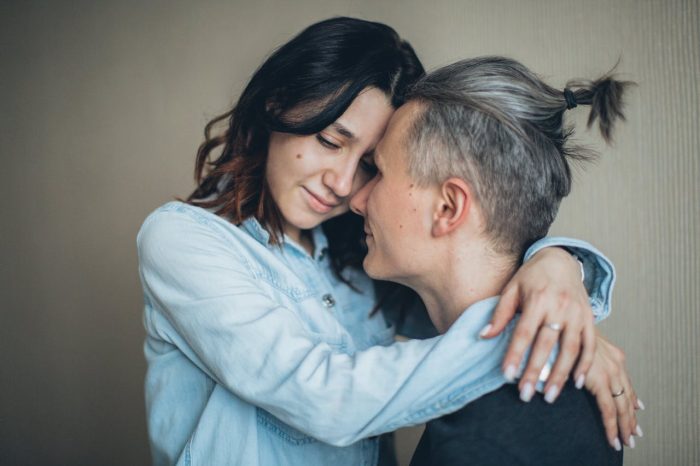{*Did you know you can write on Elephant? Here’s how—big changes: How to Write & Make Money or at least Be of Benefit on Elephant. ~ Waylon}
~
Emotion is a Process: Understanding the Dance Between You and Your Partner
Let’s talk about emotion.
No, seriously—let’s talk about it. Because, whether you realize it or not, emotion is at the center of almost everything you and your partner do. It’s in the way you laugh, the way you fight, the way you connect, and yes, the way you disconnect.
And here’s what we all need to know: emotion is a process. It’s not static. It’s constantly moving, evolving, shifting beneath the surface.
Now, if you’re anything like I was before I studied this stuff deeply (and messed up a few relationships along the way), you might think emotions are these things that just happen to us. Like, you’re having a perfectly good day, and then bam—out of nowhere, you’re angry or sad, and you’re not quite sure how you got there. You think it’s because of what your partner said (because it’s always what your partner said, right?), but here’s the truth: emotions are not random. They are responses in a process that actually follows a path.
So, what is this process, and why should you care? Good question.
Step 1: Something Happens (The Trigger)
First, something happens. Simple enough, right? It could be a word, a look, a memory, or something as innocent as your partner scrolling on their phone when you’re trying to talk. This is the external event that kicks off the emotion process.
But here’s the twist: it’s not the event itself that creates your emotional response. It’s how you interpret it. And what do we use to interpret things? Our past. Our history. Our stuff.
Think about it. If you grew up in a family where being ignored felt like abandonment, that innocent phone scrolling may hit you like rejection. If your partner grew up in a household where everyone multitasked, they may not even know they’re doing anything wrong. So, the first step in emotion is not just the external event—it’s the meaning you give it.
Step 2: Your Body Reacts (The Physical Response)
Once the event is interpreted, your body kicks into gear. Your heart rate speeds up, your breathing changes, and your muscles may tense. Maybe you even feel that pit in your stomach (you know the one). This physical response is automatic. It’s your body’s way of preparing you for action, whether that’s fighting, fleeing, or freezing.
Here’s where it gets interesting: sometimes, your body reacts before your brain even realizes what’s happening. So you might already be in defense mode before you’ve even figured out what you’re defending against. This is why emotion feels so intense—because it is intense. Your body thinks something’s at stake, even if it’s just a disagreement over who left the dishes in the sink.
Step 3: You Make Meaning (The Cognitive Response)
Now, here comes the fun part (and by fun, I mean the part that usually gets us into trouble). Your brain jumps in to make sense of all these physical sensations. And guess what? It’s using shortcuts. It’s pulling from your past experiences, your memories, and your insecurities to figure out what’s going on.
If you’ve been hurt before, you’re more likely to interpret your partner’s behavior through that lens. A small, innocent comment can feel like a personal attack if it hits an old wound. Your brain connects the dots, even if the dots don’t belong together. And suddenly, you’re upset, not just because of what happened now, but because it reminds you of what happened then.
And here’s the rub: your partner is doing the same thing. Their brain is busy making its own meaning out of the situation. Two different people, two different interpretations, and suddenly you’re not having the same argument at all.
Step 4: You Respond (The Behavioral Response)
Finally, all that emotion has to go somewhere. So, you respond. Maybe you lash out, maybe you shut down, maybe you withdraw and stew silently (my personal favorite back in the day). Whatever it is, your emotional response affects your partner. And guess what? Now they’re triggered, too.
Here’s the thing: emotion is contagious. Your body language, your tone of voice, even your silence—it all sends signals. And just like that, you’re in a dance of reactivity. You’re both reacting to each other’s reactions, and the cycle keeps going until someone decides to step out of the dance.
So, why is it helpful to know this?
Knowing that emotion is a process gives you power. It allows you to slow things down, get curious, and figure out what’s really happening—not just on the surface but underneath. When you understand that your emotional responses are rooted in interpretation (and past experiences), you can start to ask yourself questions like:
>> Does this feel familiar?
>> What does this remind me of?
>> Am I responding to my partner or to something from my past?
And once you start asking those questions, the whole process slows down. You create space. Space to breathe, to reflect, and—most importantly—to choose a different response.
When you understand your own process, you can understand theirs, too.
Here’s where it gets good. Once you understand how you process emotion, you can start to understand how your partner processes it, too. You can recognize their triggers, see when they’re in the heat of the moment, and instead of reacting, you can offer empathy.
You stop taking things so personally. Because it’s not always about you. Sometimes, it’s about that thing that happened to them 20 years ago, and they’re just now unpacking it in your relationship.
I know, this sounds like a lot. But the truth is, emotion is messy. Relationships are messy. And that’s okay. You’re not supposed to have it all figured out. But the more you understand the process, the better you’ll be at navigating it. For yourself and for your partner.
So, the next time you feel that wave of emotion rising, remember: it’s a process. You’re not just feeling something out of nowhere. You’re moving through a series of steps, and with a little awareness, you can move through them with more grace and connection.
Because at the end of the day, understanding the process of emotion is the key to understanding yourself—and your partner—better.
And who doesn’t want that?
~

 Share on bsky
Share on bsky







Read 0 comments and reply